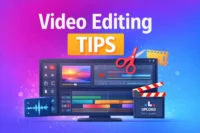What is a solo podcast-pros-&-cons and Engaging Audience
Published: 1 Oct 2024
A solo podcast is a format where a single host presents content without co-hosts or guests. This type of podcast allows the host to share .What is a solo podcast-pros-&-cons
Full creative control, no scheduling conflicts, and personal connection with the audience.
Cons Can feel one-sided pressure to carry all content alone and less variety in perspectives.
he Rise of Solo Podcasts: Why They Matter

The podcasting landscape has transformed over the past decade, giving rise to various formats that cater to diverse audiences. Among these, the solo podcast has emerged as a significant trend, allowing hosts to share their insights and experiences without the need for co-hosts or guests.
The best podcast questions are those that spark meaningful conversations, uncover unique insights, and allow guests to share their authentic selves. Start with open-ended questions like, “What inspired you to start your journey?” to explore their story.
Dive deeper with thought-provoking prompts such as, “What challenges shaped your perspective the most?” to extract relatable lessons. Add variety with fun or unexpected questions like, “If you could relive one day, what would it be?” to showcase their personality. Balancing thoughtful, lighthearted, and specific questions ensures a dynamic and memorable podcast episode that captivates both your guest and your audience.
What Defines a Solo Podcast?
A solo podcast is characterized by a single host who engages in monologue-style discussions on various topics. This format can include storytelling, advice, commentary, or personal reflections. Unlike multi-host shows, where dynamics and conversations can vary, solo podcasts offer a more intimate listening experience, allowing audiences to connect with the host on a personal level.
how podcast work complete guide pros & cons of podcast
.How to Establish a Unique Personal Solo Podcast
.How to Grow Your Solo Podcast
.
The Popularity of Solo Podcasts
The rise of solo podcasts can be attributed to several factors:
Personal Storytelling:
In an era where authenticity is valued, solo podcasts allow hosts to share their unique perspectives and life stories. This personal touch resonates with listeners seeking relatable content, fostering a sense of community among fans.
Accessibility:
Starting a solo podcast requires fewer resources compared to shows with multiple hosts or guests. This accessibility has encouraged many individuals to share their voices, resulting in a diverse array of topics and styles within the solo podcasting niche.
Focus on Expertise:
Solo podcasts often highlight the host’s expertise in a particular field. By consistently sharing insights and knowledge, hosts can position themselves as thought leaders, attracting listeners interested in their specific area of expertise. What is a solo podcast-pros-&-cons
Creating a Compelling Solo Podcast
Identify Your Passion:
Choose a topic you are genuinely passionate about. Your enthusiasm will come through in your delivery, making the podcast more engaging for listeners.
Craft Your Episodes:
Plan the structure of your episodes, including key points you want to cover. Having a clear outline can help maintain focus and ensure you deliver valuable content to your audience. what is a solo podcast-pros-&-cons and Engaging Audience
Establish a Consistent Format:
Decide on the format of your podcast, whether it’s a structured episode with segments or a free-flowing discussion. Consistency in format can help establish a recognizable brand for your podcast.
Use Quality Equipment:
Invest in a good microphone and recording software to ensure high audio quality .what is a solo podcast-pros-&-cons and Engaging Audience Clear sound enhances the listening experience and reflects professionalism.
Edit for Clarity:
Take the time to edit your episodes carefully. Removing unnecessary pauses and distractions will create a polished final product, enhancing listener satisfaction.

Here’s an image that visually captures the essence of solo podcasting: a cozy home studio setup with a host recording their podcast alone. It highlights the peaceful and creative atmosphere that many solo pod casters enjoy while working on their content
Engaging with Your Audience
One of the challenges of solo podcasting is maintaining listener engagement. To address this, consider the following strategies:
Encourage Listener Feedback:
Invite listeners to share their thoughts and questions through social media or email. Engaging with your audience fosters a sense of community and encourages loyalty.
Incorporate Listener Stories:
Share listener-submitted stories or questions in your episodes. This involvement creates a participatory atmosphere, making your audience feel valued.
Be Authentic
: Embrace vulnerability and share your personal experiences. Authenticity builds trust, allowing listeners to relate to you on a deeper level.
What is a solo podcast-pros-&-cons
advantages of solo podcast
Lack of Interaction: Without co-hosts or guests, you miss out on the dynamic conversation and differing perspectives that can make episodes more engaging.
Content Pressure:
As the sole creator, you’re responsible for generating all ideas, researching topics, and creating fresh content consistently, which can be overwhelming.
Audience Engagement Challenges:
It can be harder to maintain listener engagement without the back-and-forth dialogue found in multi-host formats, which may lead to episodes feeling one-sided .What is a solo podcast-pros-&-cons
Potential for Monotony:
If not handled well, solo podcasts can become repetitive or monotonous, as listeners may tire of hearing the same voice and format week after week.
- Increased Workload: Managing all aspects of the podcast — from writing and recording to editing and promoting — falls entirely on you, making the workload much heavier compared to collaborative podcasts.
| Quiz: Are You Ready to Start a Solo Podcast? |
|---|
A) Share my expertise A) Yes, I enjoy sharing my thoughts. A) Personal stories A) Intro, main content, outro A) Yes, I have a good mic and editing software. |
What are the key challenges of hosting a solo podcast?
Hosting a solo podcast can be challenging because it requires maintaining listener engagement without the dynamic interaction of co-hosts or guests. It can also be difficult to generate fresh content consistently on your own. However, with proper planning, good storytelling, and audience interaction, solo pod casters can overcome these hurdles.
What topics can I cover in a solo podcast?
You can cover any topic that interests you or that you’re passionate about, such as personal stories, advice, industry insights, or even book reviews. The key is to choose something that resonates with your audience.
Conclusion
Solo podcasts represent a powerful avenue for individuals to share their voices and connect with audiences worldwide. By understanding the unique characteristics and benefits of this format, aspiring pod casters can create compelling content that resonates with listeners. As the podcasting landscape continues to evolve, solo podcasts will undoubtedly play a vital role in shaping the future of this engaging medium.
what is a solo podcast-pros-&-cons and Engaging Audience
Proudly powered by WordPress

- Be Respectful
- Stay Relevant
- Stay Positive
- True Feedback
- Encourage Discussion
- Avoid Spamming
- No Fake News
- Don't Copy-Paste
- No Personal Attacks

- Be Respectful
- Stay Relevant
- Stay Positive
- True Feedback
- Encourage Discussion
- Avoid Spamming
- No Fake News
- Don't Copy-Paste
- No Personal Attacks






